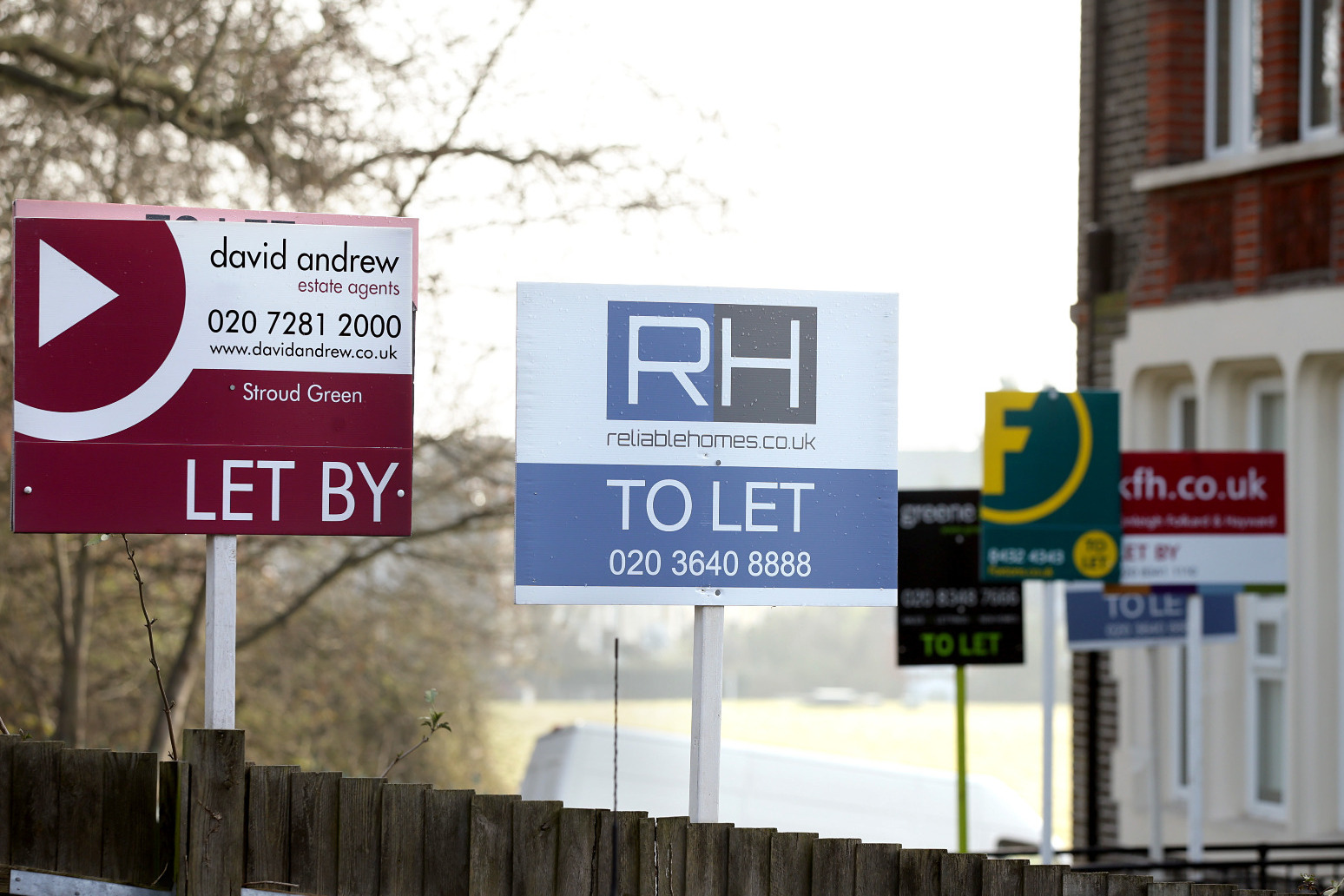
Rents ‘likely to continue rising sharply despite cost-of-living squeeze’
That's according to the Royal Institution of Chartered Surveyors
Rents are likely to continue rising sharply despite the cost-of-living crisis, surveyors are warning.
Property professionals’ expectations that rents will rise in the next few months are at the strongest levels seen so far this century, the findings from the Royal Institution of Chartered Surveyors (Rics) indicate.
A net balance of 63% of professionals expect rental prices to increase over the three months ahead, marking a fresh record high in records going back to the second quarter of 1999, Rics said.
It said that in the lettings market, tenant demand rose firmly over the three months to July.
But, reflecting an imbalance between demand and supply in the rental sector, landlord instructions declined further.
Looking at the house sales market, a net balance of 45% of property professionals reported new buyer inquiries falling rather than rising.
A net balance of 44% of professionals noted a decline in agreed sales during July, representing the weakest reading for the sales measure since the early stages of the pandemic, Rics said.
New instructions to sell homes also fell in July, indicating a deterioration in the flow of supply.
Rics chief economist Simon Rubinsohn said: “The recent uptick in mortgage activity looks likely to be reversed over the coming months if the feedback to the latest Rics Residential Survey is anything to go by.
“The continued weak reading for the new buyer inquiries metric is indicative of the challenges facing prospective purchasers against a backdrop of economic uncertainty, rising interest rates and a tougher credit environment.
“Just as concerning are the insights being provided around the lettings markets. Demand shows no signs of letting up, supply remains constrained and that means rents are likely to continue rising sharply despite the cost-of-living crisis.”
Commenting on Rics’ findings, Dan Wilson Craw, deputy chief executive of campaign group Generation Rent said: “In many cases tenants are being priced out of their homes and forced into the lettings market to compete for a new place to live.
“At the same time a lot of people who want to move can’t because rents on new tenancies have risen so rapidly. That has a knock-on effect for the number of homes coming on to the market.
“Long term, the answer is to build many more homes in the places people want to live, including social housing to allow more people to escape private renting.”
Some major mortgage lenders have been cutting rates this week, amid signs that stubbornly high inflation is easing. The Bank of England uses base rate rises, which affect borrowing costs, as a tool to subdue inflation.
Among the rate reductions, HSBC UK has cut some homebuyer, first-time buyer and remortgage rates on offer by up to 0.35 percentage points, as well as adding a £500 cashback incentive to some deals.
Tom Bill, head of UK residential research at Knight Frank said: “Some lenders are cutting mortgage costs as the (Bank of England base) rate nears its peak, which means that while sentiment will remain subdued, it should improve in the second half of this year.”
He added that higher mortgage rates have compounded issues for renters “which means the squeeze on tenants won’t vanish in the short term”.
A separate study from property website Zoopla found that 42% of non-homeowners aged under 40 have given up on the idea of getting on the property ladder in the next 10 years.
Even among those earning more than £60,000 per year, 38% said they had given up on the idea of being able to afford a home in the next decade.
Just over a fifth (21%) of people across the survey believe they will definitely be able to afford a home in the next decade – and 14% are already planning to buy one, or in the process of doing so.
A quarter (25%) believe they will probably be able to buy a home in the next decade, but are not certain, while nearly one in 10 (9%) said they are not sure and a further 3% chose none of the survey answer options.
Among those who have given up on a home in the next decade, the cost-of-living crisis (64%) was seen as the main barrier to home ownership, house prices were highlighted by 51% and nearly half (49%) pointed to higher mortgage rates.
Of those who are planning, or in the process of buying their first home, 85% said they had made financial sacrifices to do so.
Zoopla commissioned Censuswide in July 2023 to survey 2,000 UK adults under the age of 40, who do not own a home.
A Government spokesman said: “We are on track to deliver one million new homes in this parliament and are investing £11.5 billion to build more of the affordable, quality homes this country needs.
“Last month we set out an ambitious 10-point plan to build more homes in Britain which will support aspiring homeowners, while the Renters (Reform) Bill will abolish section 21 ‘no fault’ evictions to give tenants greater security in their homes and give tenants greater powers to challenge unfair rent hikes.
“Since 2010, we have helped over 829,000 households to purchase a home through schemes including help to buy and right to buy.
“We have also extended the mortgage guarantee scheme, which has helped over 30,000 households with 5% deposits on to the housing ladder.”
Published: by Radio NewsHub